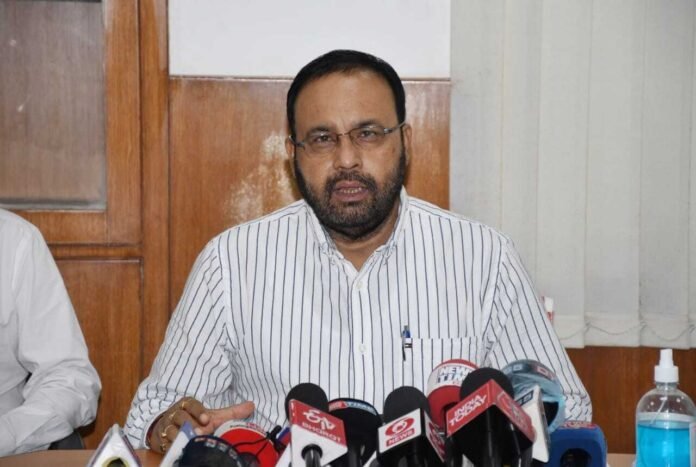As the monsoon season unfolds, Assam finds itself grappling with a concerning surge in dengue infections, with health authorities registering a staggering 106 cases across the state. The announcement by the Health Minister underscores the urgent need for heightened vigilance, proactive measures, and community engagement to mitigate the spread of the mosquito-borne disease and safeguard public health.
Dengue fever, caused by the bite of the Aedes mosquito infected with the dengue virus, poses a significant public health challenge in tropical and subtropical regions, including Assam. Characterized by symptoms ranging from fever and headache to severe joint pain and hemorrhagic complications, dengue can have debilitating effects on individuals and strain healthcare systems, particularly in densely populated areas with limited resources.
The sudden spike in dengue cases in Assam serves as a sobering reminder of the unpredictable nature of infectious diseases and the importance of early detection and response. Health authorities have issued advisories urging residents to take precautions against mosquito bites, such as using insect repellents, wearing long-sleeved clothing, and eliminating breeding sites around homes and communities.
Moreover, efforts are underway to enhance surveillance and monitoring of dengue cases, strengthen diagnostic capabilities, and provide timely treatment and support to affected individuals. Rapid response teams have been deployed to conduct vector control activities, such as fogging and larvicidal treatments, in high-risk areas identified through epidemiological analysis and mapping of mosquito breeding sites.
The surge in dengue infections in Assam has placed significant strain on the state’s healthcare infrastructure, highlighting the need for enhanced capacity building and resource allocation to effectively manage the outbreak. Hospitals and healthcare facilities are bracing for an influx of patients seeking medical attention for dengue-related complications, including severe cases requiring intensive care and supportive therapy.
Furthermore, the dengue outbreak underscores the interconnectedness of environmental, social, and health determinants of disease transmission and resilience. Factors such as rapid urbanization, inadequate sanitation, and climate change can create favorable conditions for mosquito breeding and proliferation, exacerbating the risk of dengue outbreaks in vulnerable communities.
In response to the crisis, the Assam government has launched a comprehensive awareness and prevention campaign aimed at educating the public about the importance of vector control measures and personal protective behaviors. Community participation and collaboration are key components of the campaign, with local leaders, volunteers, and civil society organizations mobilizing efforts to disseminate information, distribute mosquito nets, and mobilize resources for affected communities.
Moreover, the dengue outbreak underscores the need for sustained investment in public health infrastructure, capacity building, and disease surveillance systems to effectively respond to emerging health threats and safeguard population health. By strengthening healthcare delivery systems, improving access to essential services, and promoting evidence-based interventions, governments can enhance resilience and reduce the burden of infectious diseases on communities and health systems.
In addition to immediate response measures, long-term strategies for dengue prevention and control must address underlying social determinants of health, including poverty, inequality, and environmental degradation. By addressing root causes and promoting holistic approaches to health and well-being, policymakers can create environments that are less conducive to disease transmission and more resilient to future outbreaks.
As Assam grapples with the surge in dengue infections, concerted efforts are needed from all stakeholders, including government agencies, healthcare providers, communities, and individuals, to contain the outbreak, mitigate its impact, and prevent future recurrences. By working together and adopting a multi-sectoral approach to dengue prevention and control, Assam can overcome the current crisis and build a healthier, more resilient future for its residents.

